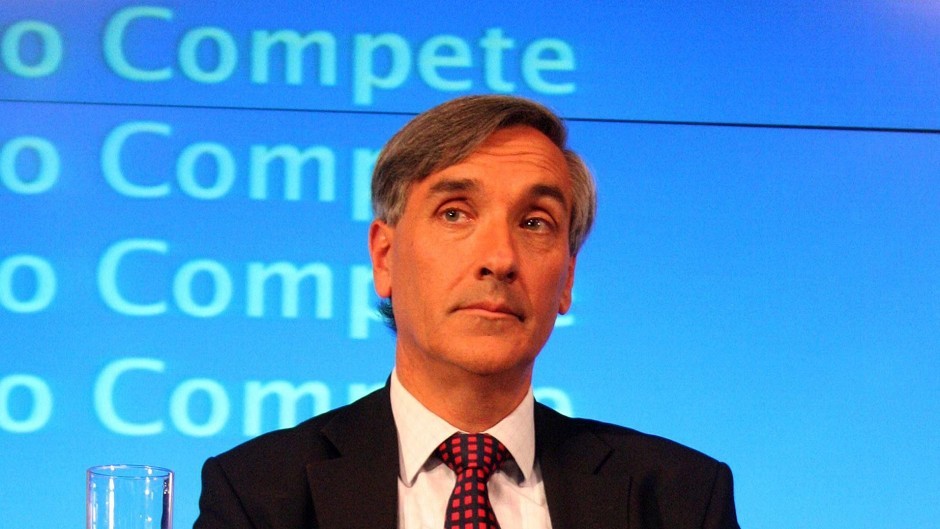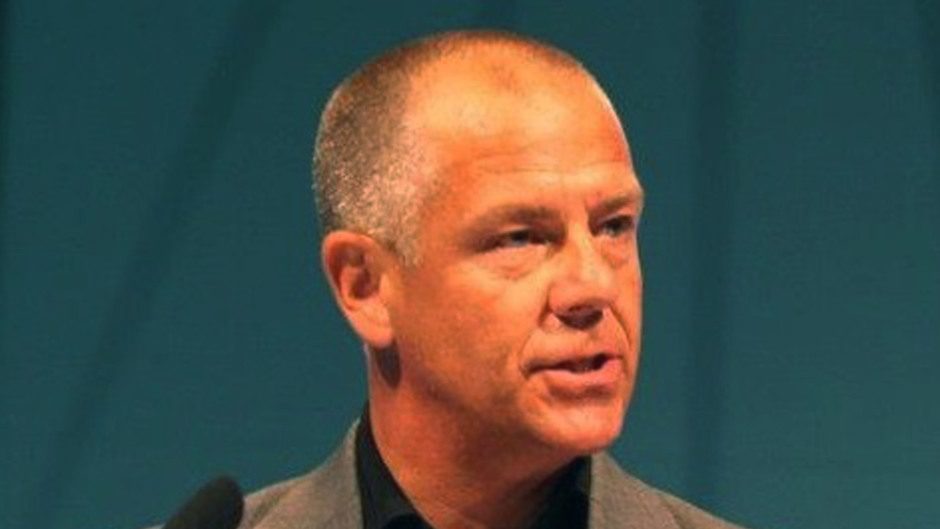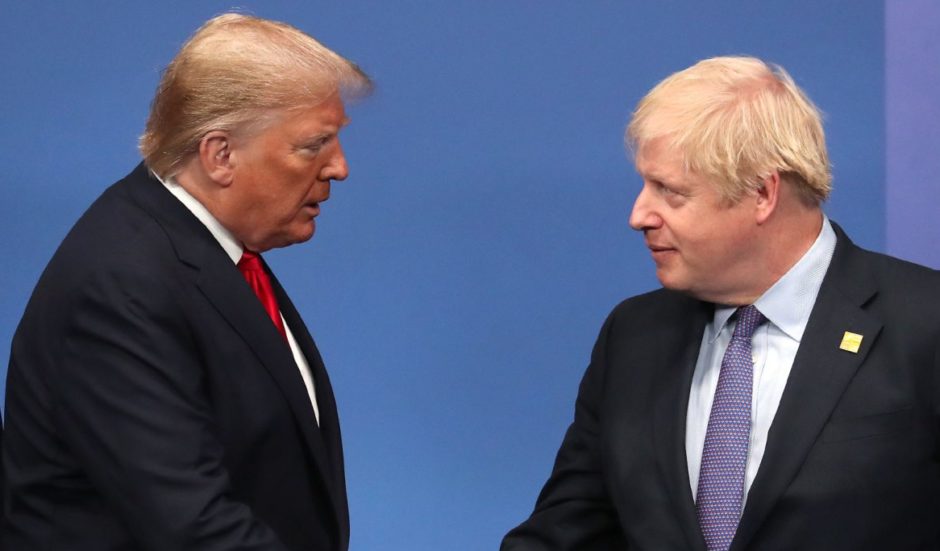Higher wages for UK workers should be one of the results of the proposed immigration shake-up, according to Conservative ministers. But we ask — is that outcome likely?
Under plans outlined this week for a points-based visa system, overseas staff would effectively be banned from taking low-paid jobs in Britain.
The move was widely condemned in Scotland, where there is already a declining and ageing population, amid fears it would leave the NHS, care homes, tourist industry, and the agriculture and fishing sectors without enough workers to function properly.
It is down to businesses to work well with the government and join us in investing in people, levelling up across the UK so we can have wage growth across the entire country.”
Home Secretary Priti Patel
But Home Secretary Priti Patel argued that industries relying on a migrant workforce should look closer to home when recruiting new employees.
“It is about time businesses started to invest in people in this country,” she said.
“We have over eight million people – 20% of the workforce – aged between 16 and 64 that are economically inactive right now.
“It is down to businesses to work well with the government and join us in investing in people, levelling up across the UK so we can have wage growth across the entire country.”
Good, restricting low skilled migration raises wages, improves productivity and provides a higher standard of living.
Every other country does it. https://t.co/uaeZaY53H2
— Braden Davy (@BradenDavy) February 19, 2020
There has long been an argument that ending the influx of cheap labour, which was not possible while the UK was in the EU, would force employers to push up pay rates in order to attract the workers who remain.
The Migration Advisory Committee (MAC) found in 2018 that there was some evidence that immigration did depress the wages of lower-skilled workers while inflating those of higher-skilled workers, but it added that the impact was generally small.
Veteran Tory Eurosceptic John Redwood is another who has repeatedly suggested that British workers are in line for a pay rise, including in this blog from 2018, and he did so again after the proposals were unveiled this week, receiving a mixed response.
“It is better to employ fewer people on better pay, and to seek to motivate and mentor them so they earn their wages and get more out of their jobs,” he has said.
If John Redwood genuinely wanted care workers to have higher wages, he would be advocating a significant increase in the minimum wage. #c4news
— Don Coyote (@MaisonGladys) February 19, 2020
Conservatives like John Redwood supporting a reduction in available workers and saying that wages should be higher need to also explain that food and services will cost more. When that becomes apparent to the voter, good luck.
— Patric Harris (@laweesh) February 20, 2020
In the past, the argument against “open borders” has also traditionally been put forward by many on the left, as well as the right.
But the response to this week’s proposals from the left has ranged from cautious to hostile.
I knew a few very left wing people who voted for Brexit because they thought removing the pro-EU immigration bias would finally open our borders to fair opportunities from people of all countries. Hate to say I told you so but… yeah that was bonkers. 😬
— Jerry Daykin (@jdaykin) February 19, 2020
In its editorial, the Morning Star described the blueprint as an attempt to “divide working-class communities”.
“It is presented as a bid to help British workers, and bosses’ ability to undercut pay and conditions by bringing in cheap labour has been a key factor in creating the “bargain-basement” economy, dominated by insecure work and poverty pay, that we see around us,” the newspaper noted.
“…But it would be naive to believe that a Tory attack on ‘low-skilled’ immigrants will assist the fight against any of this.”
Tim Roache, GMB trade union general secretary, said: “This policy doesn’t tackle the root causes of many people’s concern – the exploitation of workers, whoever they are, by cynical employers has created a race to the bottom in terms, conditions and pay.
“On the day we see the number of zero hours contracts in this country increase to almost a million, nothing this government has said today is going to put an end to business models that use insecure work as a cash cow.
“Scapegoating migrants and playing to the gallery may get some cheap headlines, but it’s wrong and put whole sectors – such as social care and food, not to mention the NHS – at risk.”
Far from the prospect of higher wages, the unions were raising fears about a potential acceleration of a move towards automation in industry, which was another aim of the UK Government.
Workers will be distressed to hear a government minister actively encourage employers to replace them with robots.”
Diana Holland, general secretary of the Unite trade union, said: “Workers, be they in hospitality or agriculture, will be distressed to hear a government minister actively encourage employers to replace them with robots with no sense of the investment and time managing this change will take, and patients and their families will be concerned about what that means for social care and NHS patients.”
Investing in higher staff pay and new technology would also obviously cost businesses a lot of money, and would be beyond the means of some.
Many companies may go out of business, as can't afford to pay staff higher wages.
Their operational business model may be inflexible to implenting the required changes & sustaining the same level of revenue due to mandatory sales prices increases, as a result of higher cost base.— Ilona Mclean-Taylor (@ilona_mclean) February 20, 2020
I don’t agree. As pressure reduces on housing costs, as a result of less migration, folk can afford to live near the work. Business can stop relying on cheap foreign labour to sustain their business by paying higher wages. If the business can’t pay its probably not viable.
— Nick Clarke (@nickclarkeleave) February 19, 2020
It will not only be on businesses to pay higher wages, of course.
Social care providers are expected to be one of the hardest hit sectors under the plans, and they often rely in part on government funding.
Unison assistant general secretary Christina McAnea said: “Ministers must make specific allowances for social care, or the elderly and the vulnerable could soon find themselves without support.
“The government needs to get to grips with social care urgently. It must fund care properly, with increased wages and training to make care an attractive career for UK residents and migrant workers alike.”
Social care faces a big hit, unless it gets a big infusion of much-needed government funding.”
Writing in the Guardian, Jonathan Portes, a professor of economics at King’s College London and a senior fellow in the “UK in a Changing Europe” research group, also noted the requirement for government funding.
“Social care faces a big hit, unless it gets a big infusion of much-needed government funding that will allow it to increase wages and training budgets,” he said.
“Other sectors that have come to rely on EU migrants to provide a flexible (and often motivated and trained) workforce, from food processing to construction, will also be very worried.”
The answer as to whether tighter controls on immigration for lower paid jobs drives up wages may be found in Donald Trump’s USA.
In the short term, native workers may well see a wage boost as labour supply falls.”
An article in The Economist last week highlighted that wages rose by more than 3% in both 2018 and 2019 – a time when America has “turned considerably less friendly to immigrants”.
Academics found that the “two phenomena may be connected — but only for a while”.
“The lesson from all these papers is that, over time, the economy adjusts to a fall in the number of immigrants,” the article said.
“In the short term, native workers may well see a wage boost as labour supply falls.
“But businesses then reorient production towards less labour-intensive products; natives take jobs previously occupied by foreign-born folk, which may be worse paid; and bosses invest in labour-saving machinery, which can reduce the pay of remaining workers.”
It concluded: “The Trump administration’s immigration restrictionism may achieve a temporary boost in wages of the low-paid now, but at a cost to the country’s future prosperity.”








